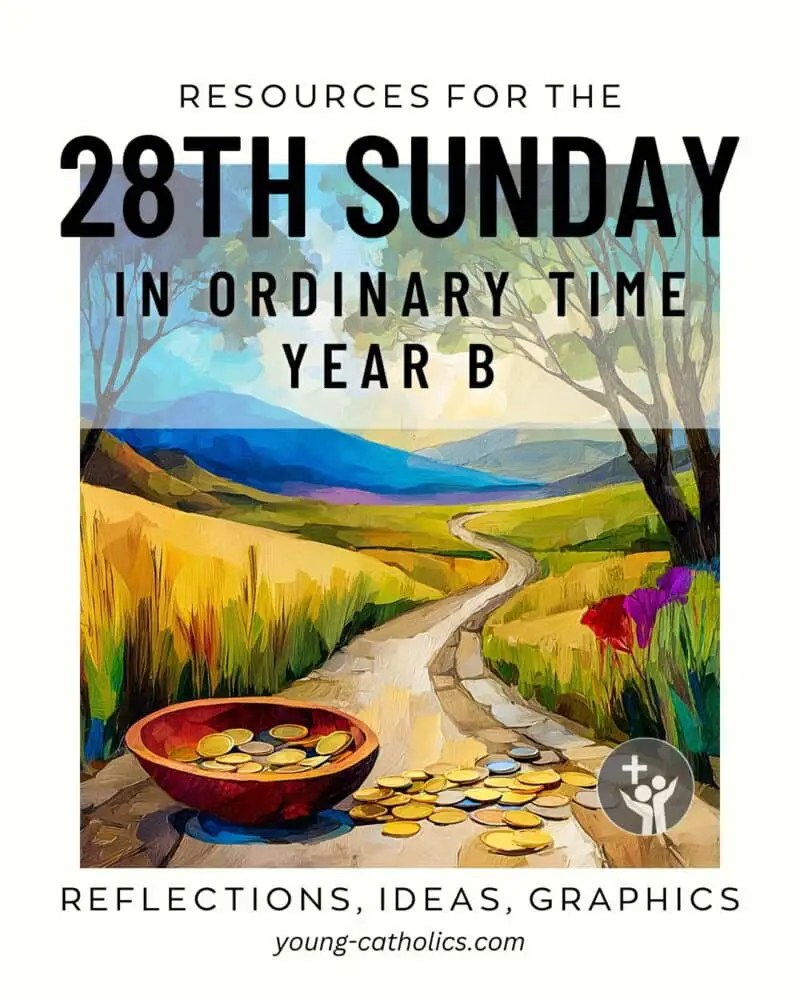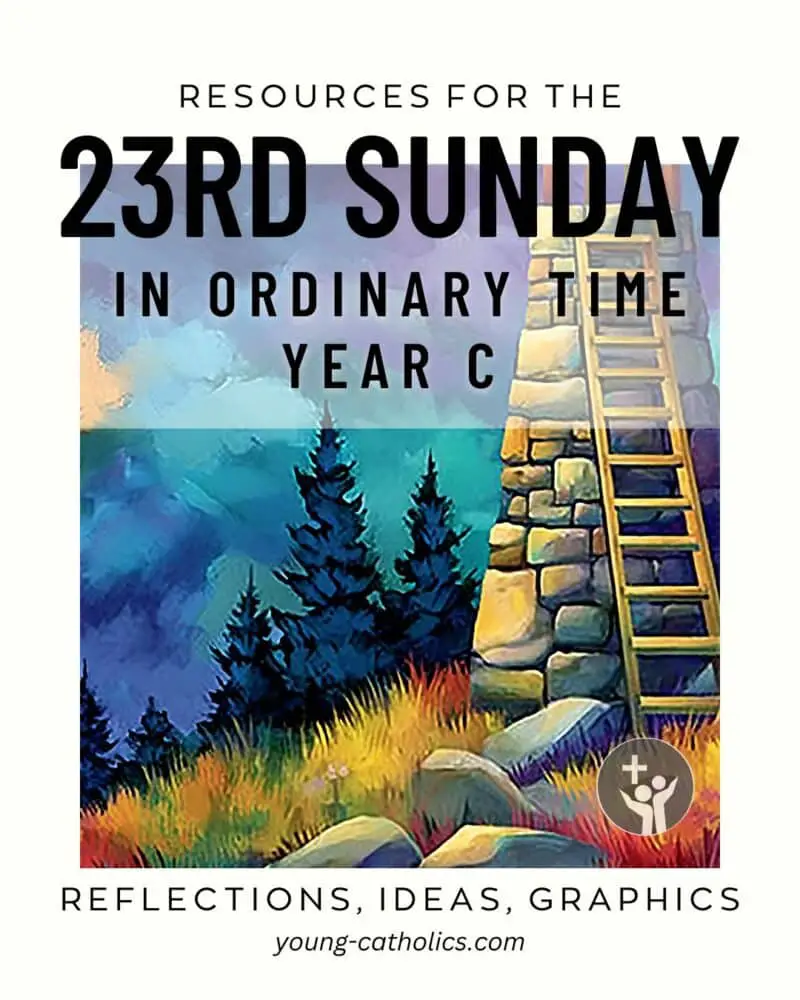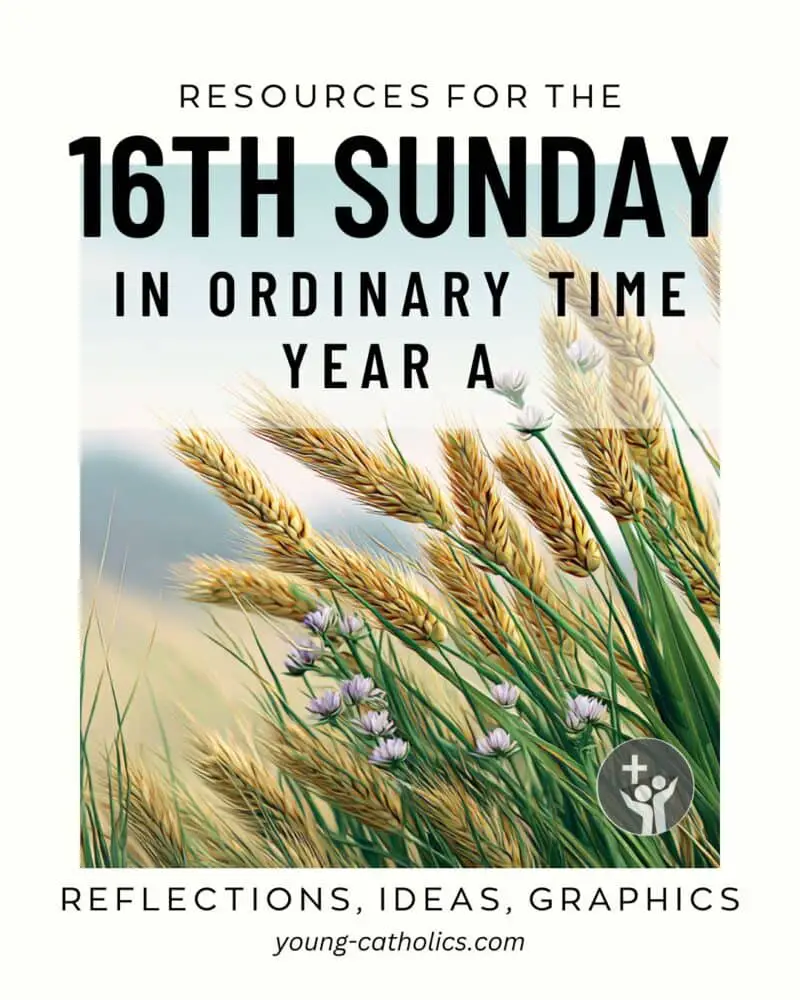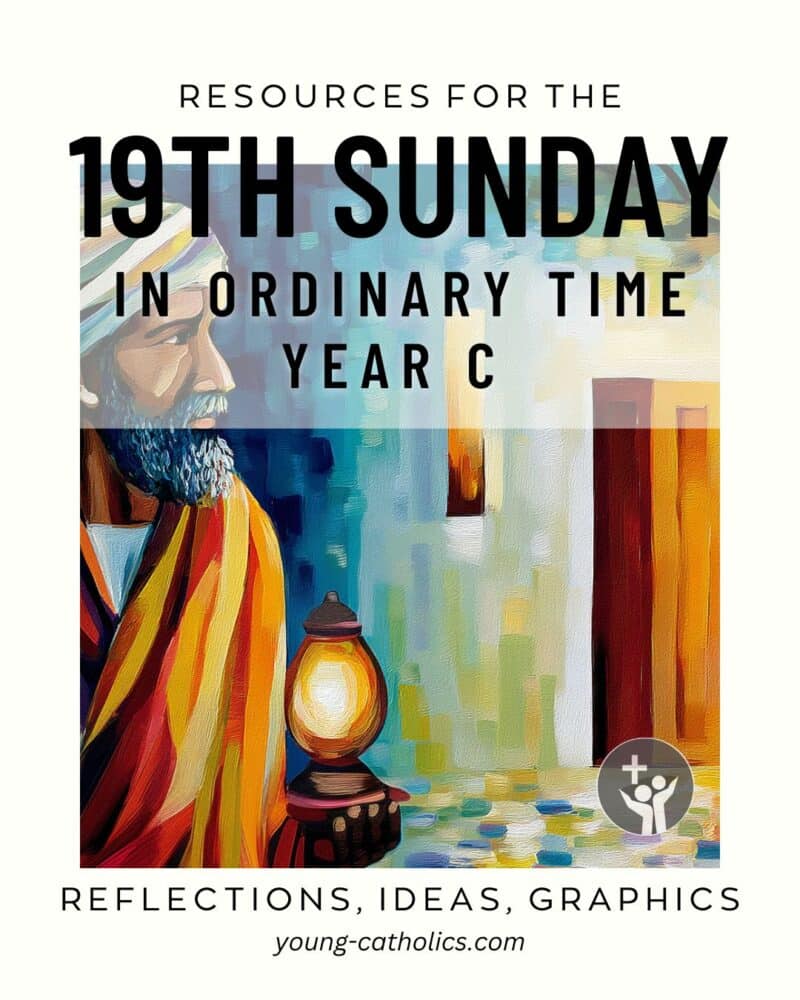The Book of Wisdom

The Book of Wisdom is found in the Old Testament. It is one of the seven books that are in Catholic Bibles but not in many Protestant Bibles. It is sometimes called the Wisdom of Solomon. This book is written in the style of wise sayings and thoughtful reflections.
The book talks about how important wisdom is in life. It shows how wisdom helps people make good choices. It also teaches that God gives wisdom to those who seek it. Wisdom is not just about knowing things. It is about living well and doing what is right.
The Book of Wisdom was likely written in Greek, not Hebrew. This shows it came from a Jewish community living outside of Israel. Many scholars think it was written in Alexandria, Egypt. The people there faced pressure to leave their faith. This book helped them stay strong and faithful.
Wisdom gives advice and comfort. It warns people not to follow the ways of the wicked. It praises the people who stay faithful, even when life is hard. The book reminds us that God sees all things. It encourages us to live with hope, trust, and a love for what is right.
Written in a Time of Struggle
The Book of Wisdom was likely written in Alexandria, Egypt. This city had many Jewish people living far from their homeland. They were surrounded by Greek culture, which shaped their schools, language, and daily life. It was hard to stay faithful in such a setting.
The author of the book is unknown, but many people believed it was Solomon. That is why the book is sometimes called the Wisdom of Solomon. However, it was written many years after Solomon lived. The writer uses Solomon’s voice as a way to share wisdom with others. This was a common style in Jewish writing.
The book was likely written about 100 years before Jesus was born. Jewish people living in other lands were facing new pressures. They were tempted to give up their faith and follow other customs. This book gave them courage and reminded them to stay close to God.
The writer was part of the Jewish community but had also learned the Greek way of thinking. He used the Greek language but kept his focus on Jewish beliefs. He wanted people to see that wisdom comes from God. It does not come from the world around them.
Poetry with a Purpose
The Book of Wisdom is written in a poetic way. It uses rich language and clear images to teach lessons. The words flow in a gentle rhythm. Many lines repeat ideas in a new way to help readers remember them.
The book does not tell stories like Genesis or the Gospels. Instead, it shares thoughts, advice, and prayers. It speaks to the mind and heart. It praises wisdom as something beautiful and lasting. Wisdom is often described like a woman who calls out to people and wants to be found.
There are different parts to the book. Some sections sound like speeches. Others sound like songs or prayers. Some parts speak about the past, like the story of how God helped His people in Egypt. Other parts look at how people live now and what happens when they reject what is good.
The writer uses strong images to make his points. Light and darkness. Life and death. The wise and the foolish. These pictures help the message stick. The style of the book invites us to stop and think. It asks us to look closely at what really matters.
Big Ideas That Still Speak Today
The Book of Wisdom shares ideas that connect well with Catholic teaching. These themes help us understand how to live with faith and trust in God. They also show how God works through history and through the lives of people.
- Wisdom comes from God
The book teaches that true wisdom is a gift. It is not just about being smart. It is about knowing what is right and choosing to follow it. - God is just and fair
The Book of Wisdom says that God sees everything. He will reward the good and punish those who choose evil. Even when it seems like the wicked are winning, God’s justice will come. - The soul lives on
This book teaches that the soul is not destroyed by death. This connects with what the Church teaches about life after death. God cares for the soul, even after the body dies. - The history of God’s people matters
The book remembers how God saved His people in the past. It talks about the Exodus and how God helped His people escape Egypt. This reminds us that God stays close to His people. - Wisdom leads to good choices
Living with wisdom means choosing what is good. It means turning away from selfishness and doing what helps others.
These themes match what Catholics believe about God, life, and the purpose of each person. The Book of Wisdom invites us to live in a way that pleases God and brings peace.
She Calls Out to Be Found
In the Book of Wisdom, wisdom is shown as a woman. This may seem strange at first, but it is a helpful picture. It makes wisdom feel close and real. She is not cold or far away. She is warm, kind, and active.
Wisdom is described as beautiful and strong. She is full of life and joy. She wants to be found. She reaches out to people. She shows herself to those who love what is good. She is not hiding. She is ready to help anyone who seeks her.
This image helps us think of wisdom as a friend or guide. She walks with people who try to live right. She helps them make good choices. She gives peace and hope. She is gentle, but she also speaks with strength.
One Book, Three Parts
The Book of Wisdom does not have official section titles, but it can be divided into three main parts. These parts flow into each other, but each has a clear focus. The chapters and verses help us see where each part begins and ends.
- The Reward of Righteousness (Wisdom 1:1 – 5:23)
This section talks about living a good life and trusting in God. It warns the wicked that their ways will not last. It also says that the souls of the just are in peace with God, even if they suffer on earth. - Praise of Wisdom (Wisdom 6:1 – 9:18)
This part praises wisdom as something greater than riches or power. Wisdom is shown as a gift from God. Solomon, speaking in the first person, asks God to give him wisdom to rule well. - Lessons from History (Wisdom 10:1 – 19:22)
This section looks back at the history of God’s people. It shows how wisdom helped people like Adam, Noah, Abraham, and Moses. It also compares how God treated the Egyptians and the Israelites during the Exodus.
Each part builds on the one before it. The book moves from advice for daily life to praise for wisdom to stories from the past. This pattern helps the reader understand that wisdom is not just an idea. It has been active in the lives of real people through time.
Still Speaking to Us
The Book of Wisdom may be old, but its message still matters. People today still face many of the same struggles. We live in a world with distractions, noise, and pressure to follow the wrong path. The Book of Wisdom helps us slow down and think about what really matters.
It reminds us that true success is not found in money or fame. It is found in doing what is right and staying close to God. Wisdom helps us see clearly. It guides us when we are unsure or afraid. It gives peace when the world feels confusing.
The book also speaks to young people. Many are trying to find their place in the world. The Book of Wisdom says that God wants to give them direction. Wisdom is ready to help those who ask for it and seek it with a true heart.
For Catholics, the Book of Wisdom connects with our call to live with purpose. It encourages faith, patience, and hope. It reminds us that God’s truth is greater than anything the world offers. Even today, its words shine a light on the path we walk.
Wisdom at Mass
The Book of Wisdom is sometimes read at Mass. It is used during both weekday and Sunday liturgies. It is not one of the most common books in the lectionary, but when it is read, the message is strong and clear.
These readings often focus on the value of wisdom, the justice of God, and the peace of the righteous. The Church uses this book to remind us that God’s wisdom is always better than human plans. It speaks to both young and old, calling all to live with truth and faith.
Some readings from the Book of Wisdom are used at funerals. These verses offer comfort by saying that the souls of the just are safe with God. Even if they suffer on earth, they are at peace with Him.
Hearing the Book of Wisdom at Mass helps us see how it fits with the message of Jesus. It connects the Old Testament to our lives today. It calls us to walk in faith and trust God in all things.
Click on a link below for more information and resources for a specific reading.

13th Sunday in Ordinary Time Year B
God Made Us for Life
Wisdom 1:13-15; 2:23-24 reminds us that God did not create death. He made the world to be full of life and goodness. God wants His people to live and be close to Him. Everything He made is meant to last. His plan is for life, not destruction.
But evil entered the world through envy and pride. This brought death and suffering. People who follow what is wrong turn away from the life God offers. This reading helps us remember that we are made for more. God wants us to live in peace with Him and with one another.

25th Sunday in Ordinary Time Year B
The Just Person Is Tested
Wisdom 2:12, 17-20 describes how people who do what is right are often attacked by others. The just person bothers the wicked, not by doing harm, but by simply living the truth. Those who reject God do not want to hear about justice or goodness.
They plan to test the just person and see if God will protect him. They want to mock and hurt him to prove he is wrong. This reading points ahead to Jesus, who was also hated by those who felt challenged by His way of life. It reminds us that following what is right is not always easy, but God sees and stays close to the faithful.

Commemoration of All the Faithful Departed (All Souls Day)
Peace for the Faithful
Wisdom 3:1-9 reminds us that those who stay close to God are never truly lost, even if they die. Others may think their lives ended in failure or sadness, but God sees them differently. They are at peace and safe in His care.
These faithful ones are like gold tested in fire. Their trust in God does not go unnoticed. In the end, they will shine and live with Him forever. This reading gives hope, especially during funerals or hard times. It reminds us that God remembers those who love Him and keeps them close.

32nd Sunday in Ordinary Time Year A
Wisdom Is Ready for You
Wisdom 6:12-16 shows that wisdom is not far away. She is ready to be found by those who seek her. She appears to those who love what is good and are willing to look for the truth. Wisdom is not hiding or hard to reach.
Those who rise early and search for her will not be disappointed. Wisdom meets people where they are and helps them live the right way. This reading reminds us to stay alert and open. When we desire what is true and good, wisdom comes to guide us.

28th Sunday in Ordinary Time Year B
Wisdom Above All
Wisdom 7:7-11 speaks about asking God for wisdom and receiving it as a gift. The writer says that wisdom is better than riches, health, or beauty. Nothing else compares to it. Gold and silver lose their shine next to her.
Wisdom brings more than knowledge. She gives peace and joy to those who choose her. When we seek wisdom first, other good things follow. This reading reminds us to value what lasts, not just what the world praises. Wisdom leads us to live in a way that pleases God.

23rd Sunday in Ordinary Time Year C
We Need God’s Help
Wisdom 9:13-18B reminds us that human thinking is limited. We often struggle to understand even simple things. So when it comes to God’s ways, we need help. We cannot figure everything out on our own.
The reading says that God sends His spirit to guide us. This helps us make good choices and walk the right path. Without this help, we are lost. It teaches us to be humble and to ask God to lead us. His wisdom makes it possible to understand what really matters.

31st Sunday in Ordinary Time Year C
God Cares for All Things
Wisdom 11:22–12:2 reminds us how small the world is compared to God, but He still cares for every part of it. Nothing is too small for His attention. He loves all that He has made, and He does not hate anything.
God is patient with sinners and gives them time to change. He corrects gently so people can turn back to Him. This reading shows that God’s mercy is wide and steady. It reminds us that He wants everyone to grow and live in the right way.

16th Sunday in Ordinary Time Year A
God Is Strong and Kind
Wisdom 12:13, 16-19 tells us that God is both powerful and gentle. There is no one else like Him. He has the strength to judge, but He also shows mercy and teaches us through kindness.
This reading reminds us that God’s patience is meant to lead us to change. He gives people time to turn back and do what is right. His example shows us how to be patient and gentle with others. It teaches us to lead with mercy, just as God does.

19th Sunday in Ordinary Time Year C
God Keeps His Promises
Wisdom 18:6-9 looks back at how God saved His people from danger. They had faith that God would do what He said. On the night of their rescue, they trusted Him and followed His command.
The reading shows that their faith brought courage and unity. They praised God together and stayed ready. God watched over them, just as He had promised. It reminds us that God is faithful and cares for those who trust in Him.
At Weekday Mass
- Monday of the 32nd Week in Ordinary Time I – Wisdom 1:1-7: Seek God in Honesty and Faith
- Friday of the 4th Week of Lent – Wisdom 2:1a, 12-22: The Plot Against the Righteous
- Tuesday of the 32nd Week in Ordinary Time I – Wisdom 2:23–3:9: The Promise of Immortality for the Just
- Wednesday of the 32nd Week in Ordinary Time I – Wisdom 6:1-11: A Call to Justice and Wisdom for Leaders
- Thursday of the 32nd Week in Ordinary Time I – Wisdom 7:22b-8:1: The Spirit of Wisdom
- Friday of the 32nd Week in Ordinary Time I – Wisdom 13:1-9: The Creator Revealed in Creation
- Saturday of the 32nd Week in Ordinary Time I – Wisdom 18:14-16; 19:6-9: The Warrior from Heaven and the Miraculous Deliverance
Resources
- Bible in a Year Podcast Episodes for the Book of Wisdom
- God Did Not Make Death (Chapters 1 and 2)
- Hope Beyond This Life (Chapters 3 and 4)
- The Desire for Wisdom Leads Us (Chapters 5 and 6)
- The Gift of Wisdom Comes from God (Chapters 7 and 8)
- Wisdom Is a Gift That Guides (Chapters 9 and 10)
- God Is Patient with Us (Chapters 11 and 12)
- Idols Can’t Help You (Chapters 13 and 14)
- Idols and Rivals (Chapters 15 and 16)
- God Sees Everything (Chapters 17 and 18)
- God Helped Them All the Way (Chapter 19)
God Did Not Make Death
In this episode of the Bible in a Year Podcast, Fr. Mike Schmitz shares three main ideas from Wisdom chapters 1 and 2. First, he points out that Wisdom 1:13 makes it clear—God did not make death. God does not enjoy when people die. He created everything to live.
Second, Fr. Mike highlights Wisdom 1:16. It says ungodly people brought death into the world by their own choices. They treated death like a friend and followed it. He explains that we choose evil, but God wants life for us.
Third, he dives into Wisdom 2:12–20. These verses sound like they are describing Jesus. Fr. Mike shows how the words match the way people treated Jesus. They mocked Him, tested Him, and killed Him—just like it says they would do to a righteous man.
Fr. Mike finishes by pointing to Wisdom 2:24. Death came through the devil’s envy. Those who follow him experience it. He reminds us that Wisdom is full of truth and asks us to listen closely in the coming days.
Hope Beyond This Life
In this episode of the Bible in a Year Podcast, Fr. Mike Schmitz reflects on Wisdom chapters 3 and 4. He says these chapters help us see death in a new way. The souls of the righteous are safe in God’s hands, even if their deaths seem tragic. Their hope is full of immortality.
Fr. Mike points out that Wisdom 3 is often used at funerals. It reminds us that even short lives have meaning when they are lived for God. He explains that God allows a time of testing, like gold in fire, to make us ready for eternal life.
He also highlights the idea that long life and many children were once seen as signs of blessing. But in Wisdom 4, the focus shifts. A short and righteous life is better than a long and wicked one.
Fr. Mike says these chapters show that there is more to life than this world. The Book of Wisdom teaches us that our true home is with God, and He watches over His faithful ones.
The Desire for Wisdom Leads Us
In this episode of the Bible in a Year Podcast, Fr. Mike Schmitz reflects on Wisdom chapters 5 and 6. He explains how the ungodly will regret ignoring the righteous and missing the truth. Their lives will vanish like smoke, while the righteous will receive crowns from the Lord. God will protect them and reward them.
Fr. Mike focuses on a key line from Wisdom 6. It says the beginning of wisdom is the sincere desire to learn. He says we can’t grow wise unless we truly want to be taught. Loving wisdom means keeping God’s laws.
He walks through a step-by-step path in the chapter. Desire for wisdom leads to love of wisdom. Love leads to obeying her laws. That brings immortality, and immortality brings us close to God. So the desire for wisdom leads us to life.
The Gift of Wisdom Comes from God
In this episode of the Bible in a Year Podcast, Fr. Mike Schmitz talks about Wisdom chapters 7 and 8. He explains how Solomon describes wisdom as better than riches, health, and even light. Wisdom brings understanding, teaches virtue, and leads to friendship with God.
Fr. Mike highlights a long list in Wisdom 7 that shows different traits of wisdom. Words like intelligent, clear, kind, and powerful describe how wisdom works. He encourages listeners to pray with these words and reflect on them. Each word gives us a deeper view of how God shares wisdom.
He also points out that wisdom is not something we gain on our own. At the end of chapter 8, Solomon says wisdom must be given by God. Fr. Mike says this is key—we can only receive wisdom by asking God for it.
Finally, he reminds us that wanting wisdom is already a good sign. If we want to grow in wisdom, God will meet us there. Our desire shows that we are open to his guidance and his truth.
Wisdom Is a Gift That Guides
In this episode of the Bible in a Year Podcast, Fr. Mike Schmitz talks about Wisdom chapters 9 and 10. He explains how Solomon asks God for wisdom because he knows he cannot lead well without it. Wisdom comes from God and must be asked for with humility.
Fr. Mike says Wisdom 10 tells stories of people from the Old Testament, but it does not name them. He invites listeners to guess who they are. He points out Adam, Noah, Abraham, Jacob, Joseph, and Moses. All of them were helped by wisdom in hard times.
He explains that wisdom shows up in many ways. It protects, guides, and teaches. Fr. Mike says wisdom even shows up as the cloud by day and fire by night when the people were in the desert.
At the end, Fr. Mike reminds us that those who ask for wisdom will receive it. God wants to guide us. But we should never say something is God’s will unless we are sure He is asking it of us. Wisdom helps us walk the right path, even when life is hard.
God Is Patient with Us
In this episode of the Bible in a Year Podcast, Fr. Mike Schmitz shares how the Book of Wisdom shows God’s mercy and power. Wisdom chapters 11 and 12 say God could destroy the wicked at any time, but He chooses to correct people slowly. Fr. Mike says God tests His people like a father, not like a harsh ruler.
He points out a key line from Wisdom 11:16. It says people are punished by the very things through which they sin. Fr. Mike explains how this helps us understand that sin brings its own pain. God allows this not to crush us, but to teach us.
In Wisdom 12, Fr. Mike highlights how God gives people time to repent. He says the phrase “little by little” shows how patient God is. Even when people are very evil, God still gives them a chance to change.
Fr. Mike reminds us that God doesn’t want to destroy us. He wants us to trust Him. God warns us gently and waits for us to come back. Fr. Mike says we need to notice this mercy and ask for the grace to respond.
Idols Can’t Help You
In this episode of the Bible in a Year Podcast, Fr. Mike Schmitz speaks about Wisdom chapters 13 and 14. He says these chapters show how silly it is to worship idols. People carve wood, paint it, and then pray to it. Fr. Mike points out that they ask for help from things that can’t even move.
He explains that idolatry is not always about evil things. It often starts with something good. We take a good thing and treat it like it’s the most important thing. That’s when it becomes a false god in our lives.
Fr. Mike says this happens even today. We might not carve statues, but we can still put other things before God. He warns that idolatry begins when we love something more than we should.
He ends by reminding us that real worship belongs to God. Everything we see in creation points to Him. But if we love created things more than the Creator, we are on the wrong path.
Idols and Rivals
In this episode of the Bible in a Year Podcast, Fr. Mike Schmitz talks about Wisdom chapters 15 and 16. He explains how the Book of Wisdom mocks idols and shows how foolish it is to worship things made by human hands. People make gods out of clay, wood, or metal—even animals or ugly creatures—and then expect help from them.
Fr. Mike says this isn’t just about ancient people. We do the same when we treat good things like they are the most important. He warns that we often take something good, like sports or hobbies, and put them in God’s place.
He reminds us that God does not want to share our hearts with rivals. Like a marriage, our relationship with God needs to be faithful. Fr. Mike shares how we can check this by asking what we would choose if we had to pick between something and God.
He tells a story about a college hockey player who realized the Eucharist mattered more than scoring the winning goal. That moment of faith was greater than any sports achievement. Fr. Mike uses it to show that worship belongs to God, not to anything else.
God Sees Everything
In this episode of the Bible in a Year Podcast, Fr. Mike Schmitz reflects on chapters 17 and 18 of the Book of Wisdom. He talks about the fear and darkness that came over the Egyptians. They thought their sins were hidden, but God saw them. There are no secret sins.
Fr. Mike says the Egyptians were trapped in their own fear. They were more terrifying to themselves than the darkness around them. But God’s people had light, even in the middle of the night.
He points out a line from Wisdom 18:14. It says God’s word came down from heaven like a warrior in the night. Fr. Mike says this reminds him of Christmas, when Jesus was born. Jesus came to fight for us.
Fr. Mike ends by saying Jesus still fights for us today. He tells us to trust that we matter to God. Even when life is dark or messy, God is with us and working for our good.
God Helped Them All the Way
In this episode of the Bible in a Year Podcast, Fr. Mike Schmitz talks about chapter 19 of the Book of Wisdom. He says this chapter wraps up the story of the Exodus. The Egyptians chased the Hebrews after letting them go, but God kept helping His people.
Fr. Mike says the Lord made a path through the sea and protected the people the whole way. The text says that even nature changed to keep the Hebrews safe. God was in control of everything.
He points out one line near the end that really stands out. It says, “You have not neglected to help them at all times and in all places.” Fr. Mike says this is true even when life was messy and hard.
He reminds us that God does the same for us. Even when we suffer or feel alone, God has not forgotten us. He is still helping us.
Lady Wisdom

Invite the spirit of divine understanding into your space with this bold image of Lady Wisdom. Available as a poster, greeting card, canvas print, or digital download, it’s perfect for home décor or gifting. Explore the full collection and let Scripture-inspired art speak to your heart and home.
Click on the image for more information on how to get the full sized artwork.
Paid subscribers may download a large copy this digital artwork without watermarks, suitable for use in bulletins, social media, newsletters, etc., free of charge by clicking here. You must be logged in as a paid subscriber to access the file.
Only current paid subscribers have the rights to use the artwork.

Wisdom Unveiled The Timeless Teachings of the Book of Wisdom
Navigating The Scriptures: The Catholic Approach to Reading the Bible

The Bible
Want to learn more about the Bible and how it all fits together? The Book of Wisdom is just one part of a much bigger story. Each book helps us understand how God speaks to us.
Visit our page, Understanding the Bible, to explore more. You’ll find simple explanations and helpful tips. It’s a great place to start or to go deeper.
Questions and Answers about the Book of Wisdom
Is the Book of Wisdom in all Bibles?
No. It is found in Catholic Bibles but not in most Protestant Bibles. Catholics include it because the Church has always accepted it as part of Scripture.
Who wrote the Book of Wisdom?
We don’t know the author’s name. The writer used the voice of King Solomon, but the book was written many years after Solomon lived.
Where was it written?
It was likely written in Alexandria, Egypt. Jewish people lived there and were trying to stay faithful in a culture that followed other beliefs.
What is the main message of the book?
The book teaches that true wisdom comes from God. It helps people live good and faithful lives.
Why is wisdom shown as a woman?
This is a way to help people see wisdom as something close, friendly, and active. It helps us picture wisdom as a guide who wants to be found and followed.
Is the Book of Wisdom used at Mass?
Yes. Some parts of it are read during the liturgy, especially when the readings focus on wisdom, justice, or the peace of the faithful.
Wisdom That Stays With You
The Book of Wisdom is one of the books found in the Old Testament. It was likely written in Alexandria, Egypt, by a Jewish person who wanted to help others stay faithful. The writer uses the voice of Solomon, but the book was written long after Solomon lived. It speaks to people living in a time when it was hard to hold on to their faith.
This book teaches that wisdom is a gift from God. It is not just about knowing facts. Wisdom helps people live well and choose what is right. The book says that God watches over the good and brings justice to the wicked. Even when it seems like evil wins, God is still in control.
Wisdom is shown as a woman who calls out to be found. She is close to anyone who seeks her. She brings peace, strength, and clarity. The book invites us to look for this kind of wisdom and hold on to it.
The Book of Wisdom ends by looking back at the history of God’s people. It reminds us how God helped them in hard times. This part encourages readers to trust that God will also help them now. Wisdom is not just for the past. It still speaks today.
Your Turn
Have you ever read the Book of Wisdom? Take a little time to open it and see what it says. You may find words that speak to what you are going through right now.
After reading, share what stood out to you in the comments. Did something surprise you? Did a certain verse give you peace or make you think? We’d love to hear your thoughts.

Leave a Reply